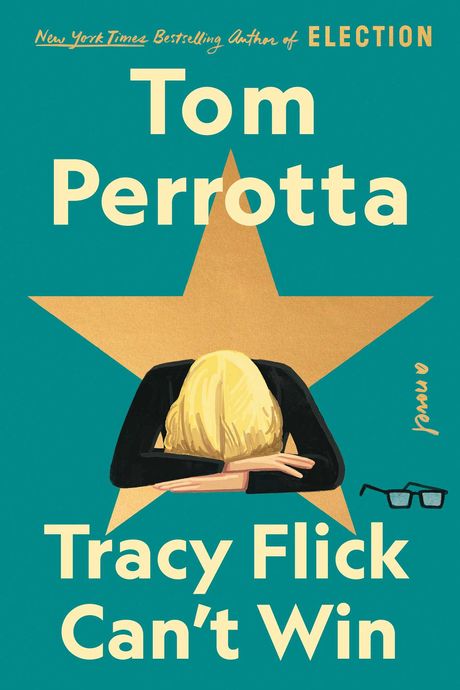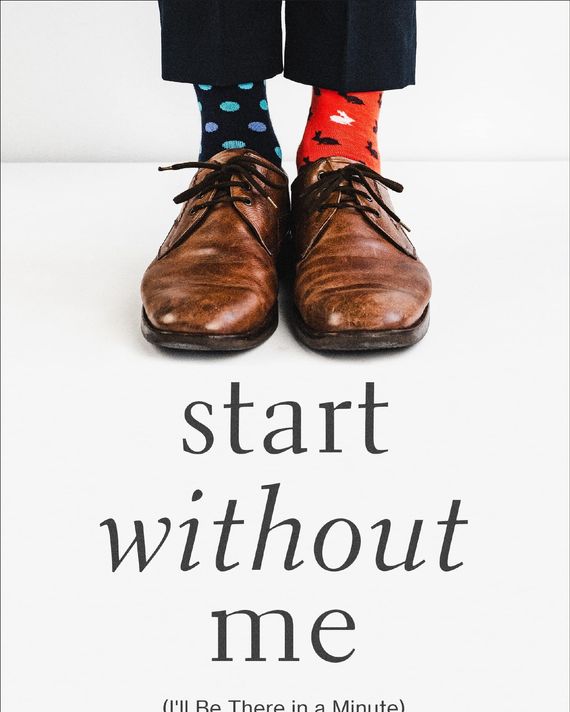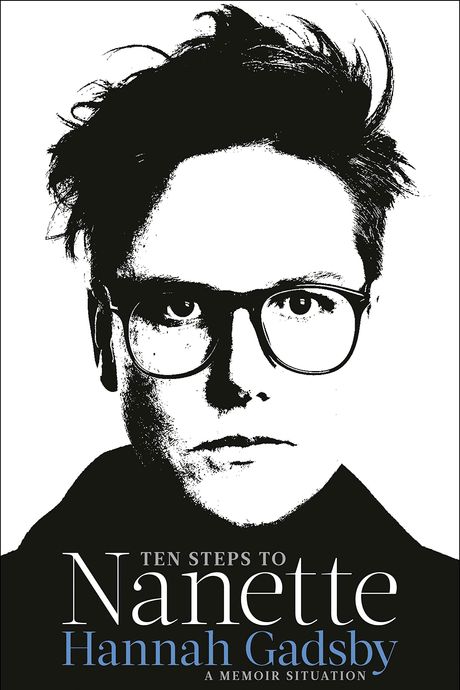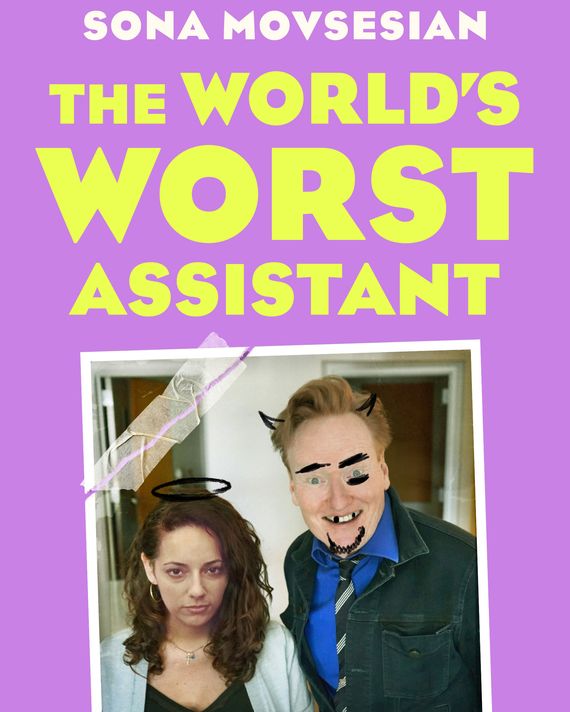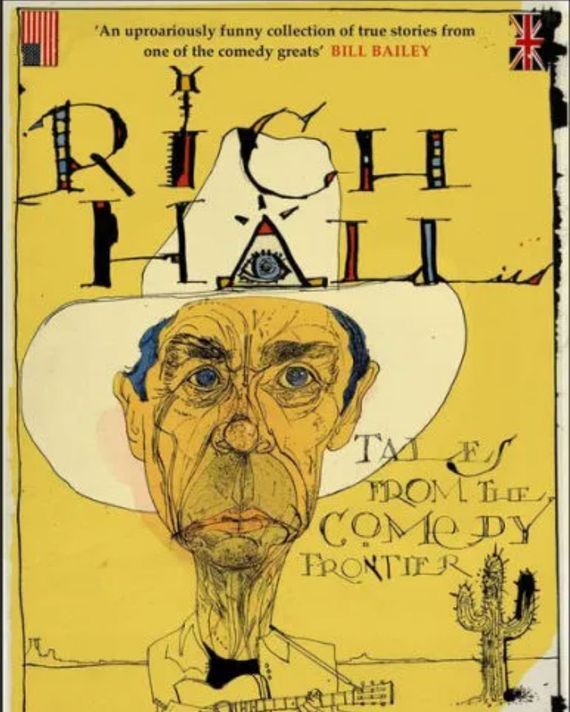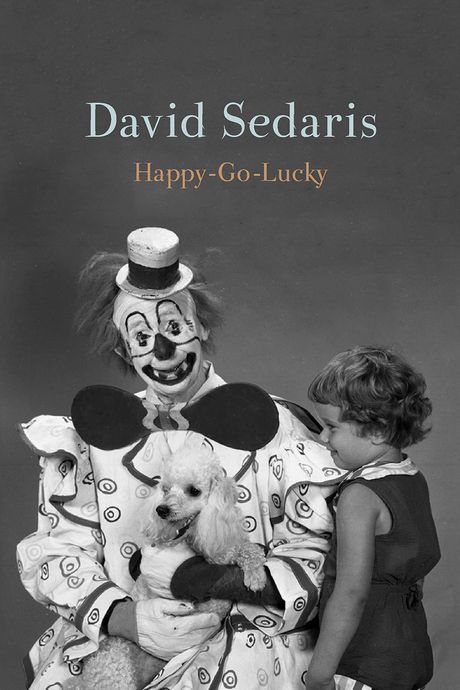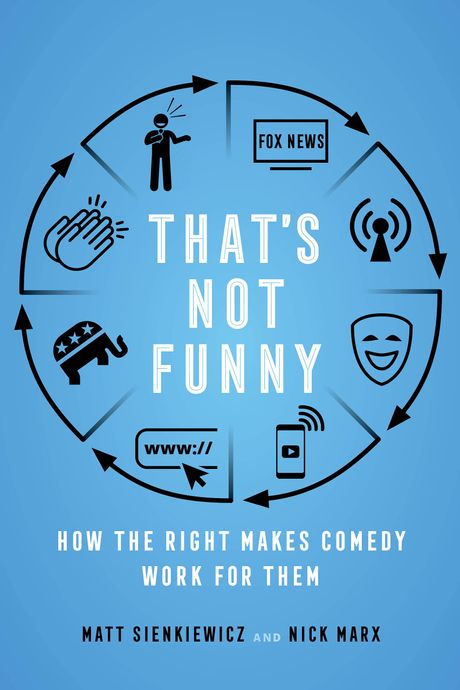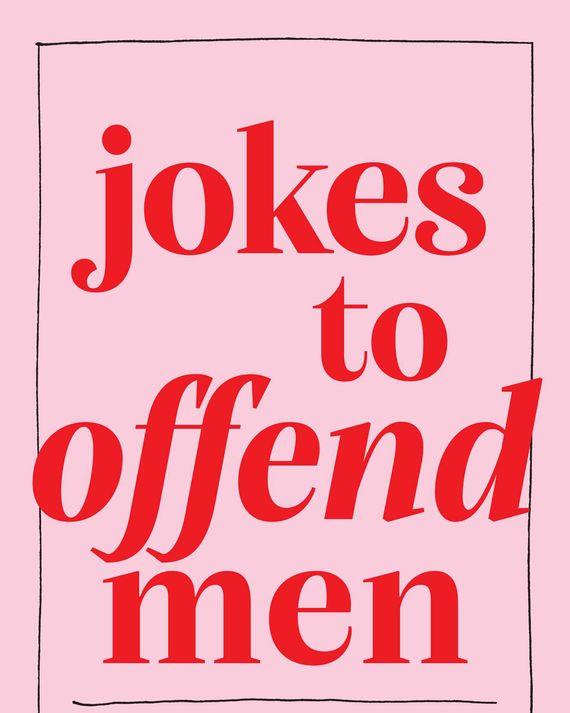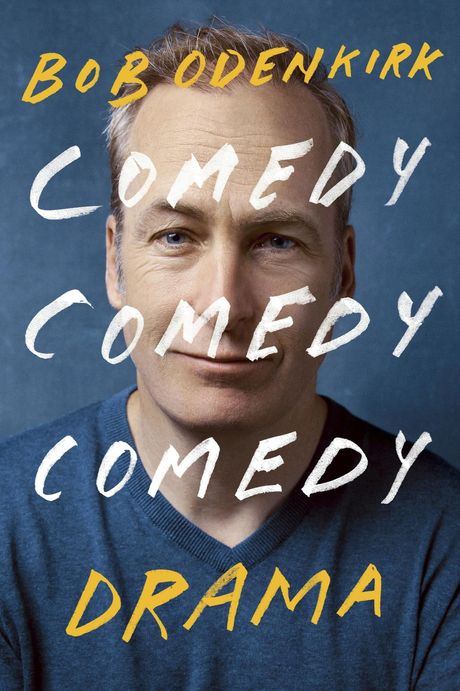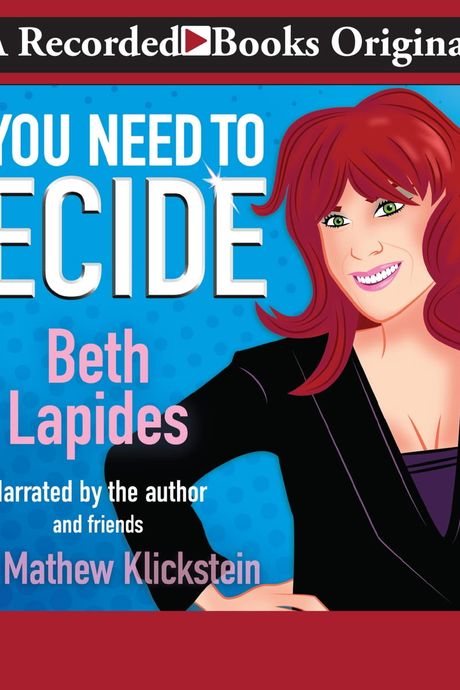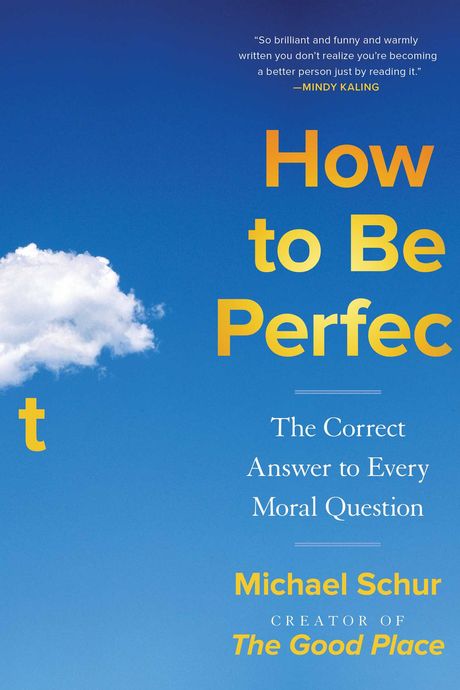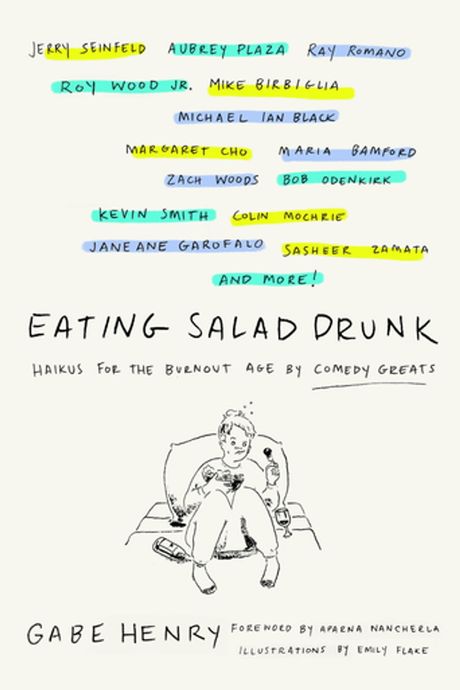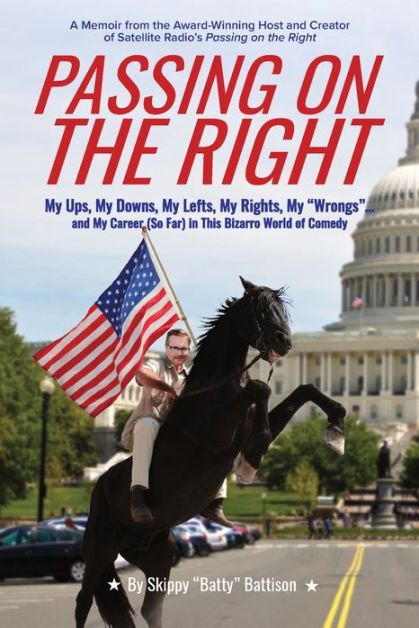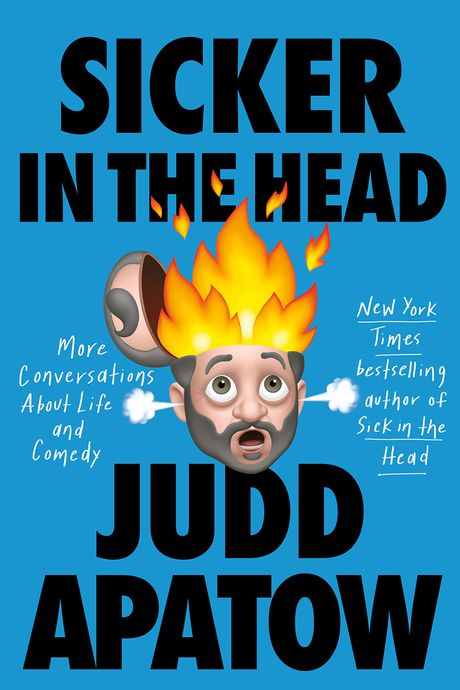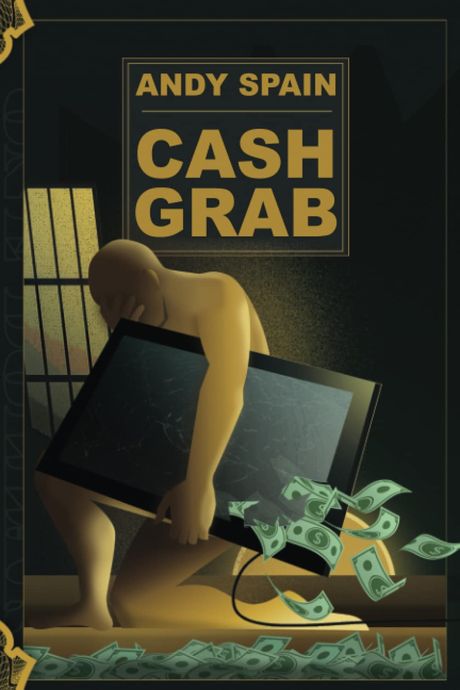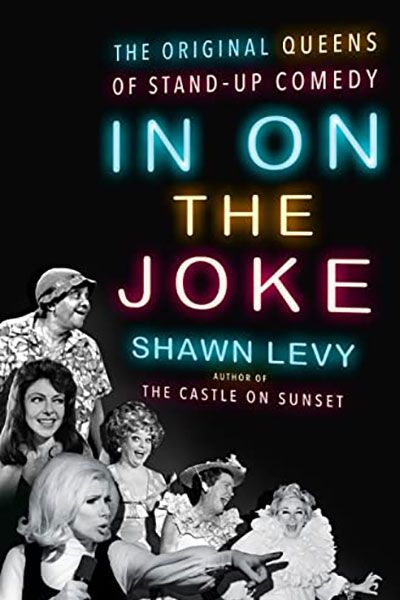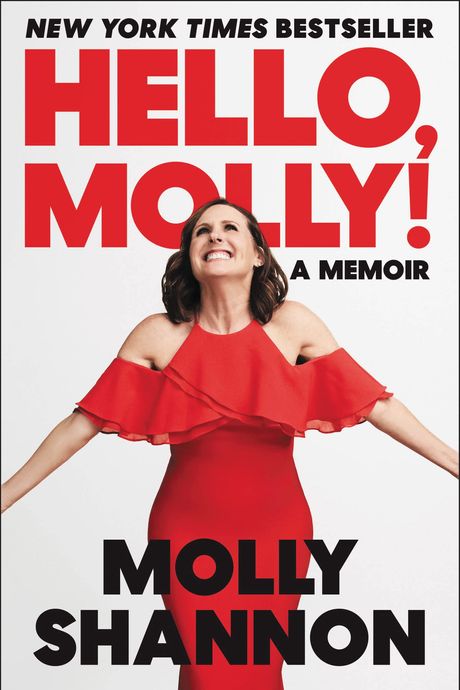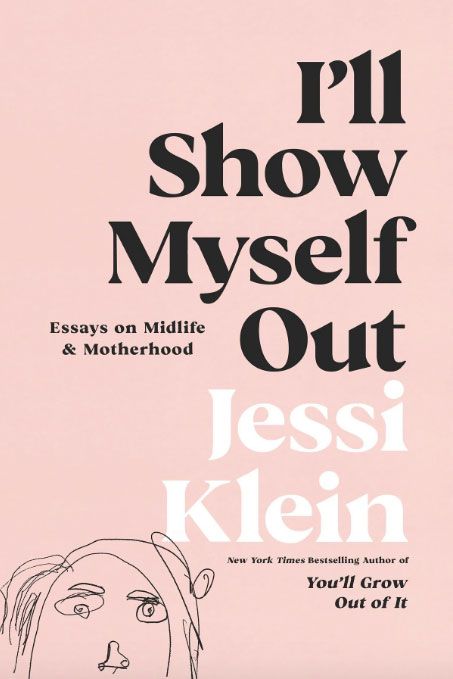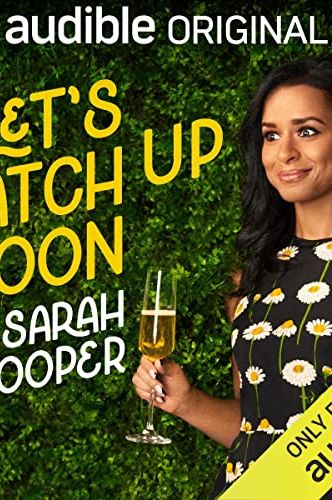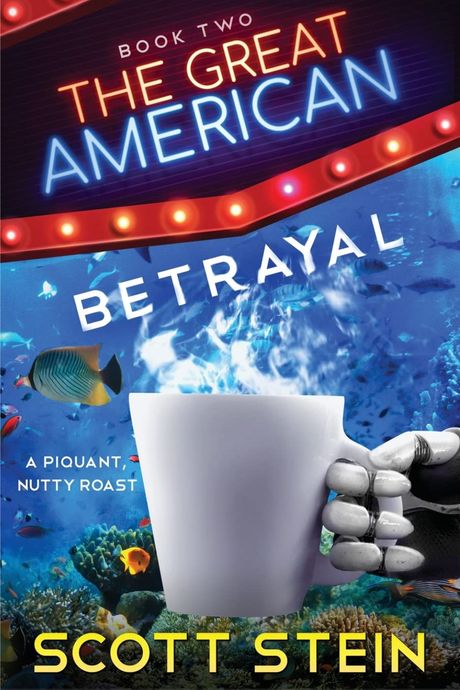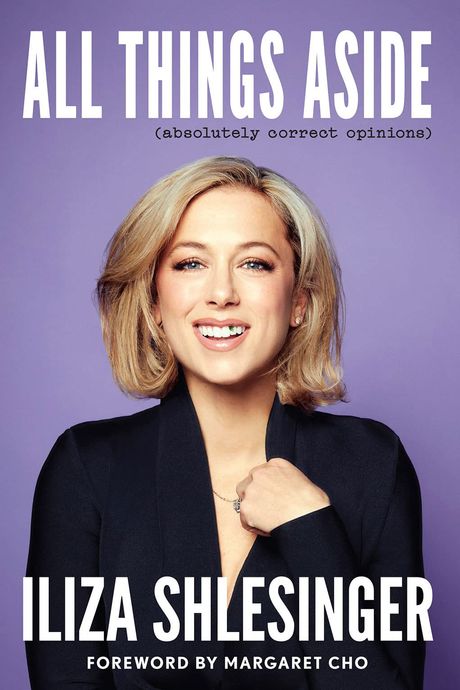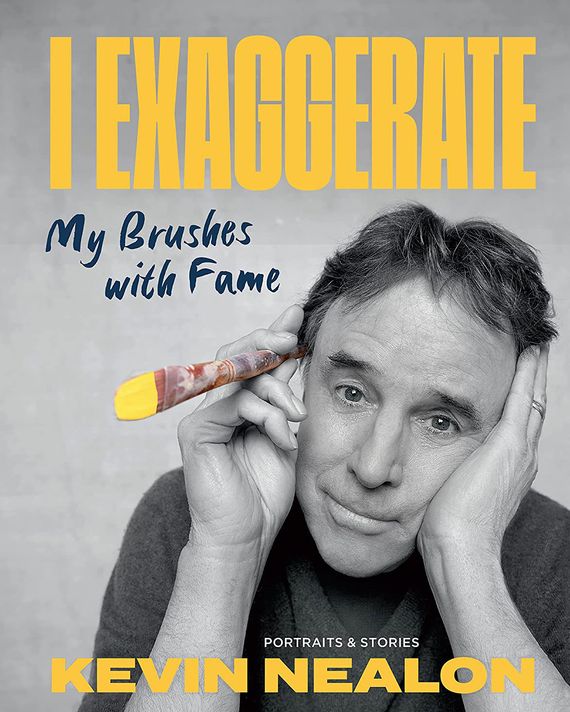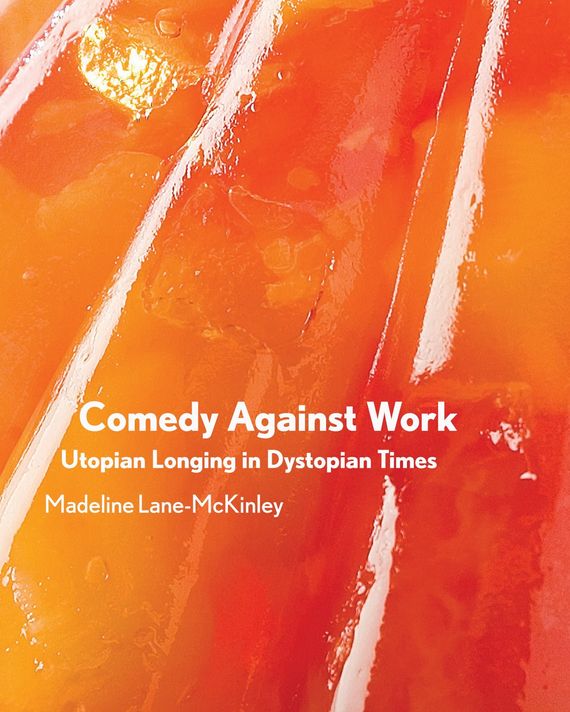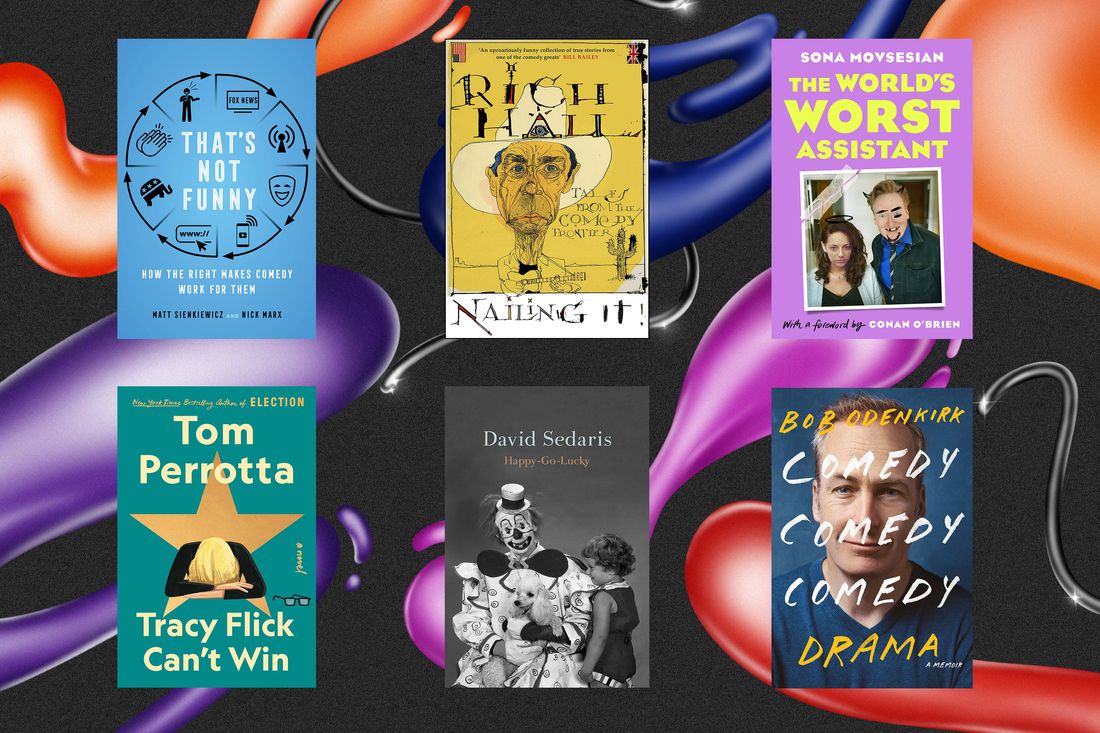
What even is a “comedy book”? It’s not a distinction used on signs hanging over a shelf in many (if any) bookstores, and it’s not a term publishers, editors, or critics use. It’s kind of an umbrella title we use here to describe a book about comedy or an adjacent figure or subject. Like “obscenity” or “passive-aggressive behavior” or “dread,” it’s hard to define in the abstract; we just know it when we see it.
A comedy book is a book about being funny, or what is funny, or what it takes to be funny, or about the business or process of being funny, usually written by someone who has made a decent living from comedy — comics, comedic actors, screenwriters, sitcom showrunners, “humorists,” and such. A comedy book might also be a book that is just plain funny, on purpose, like a comic novel.
The most striking comedy books of 2022 all seemed to take on a particular tenor, ready for a comedy evolution still in progress. Comedy has always been about pointing out and mocking the absurdities of being alive, but the tone went introspective and a little dark in 2022 — such is life in a post-pandemic, late-stage capitalist world. Comic projects, especially books, this year went for both self-exploration and pointed criticism of social, cultural, and entertainment institutions as much as they attempted to elicit laughter. Here then are the top-ten best, most important, most audacious, and, sure, funniest books that most effectively used comedy as a tool in 2022.
10.
Welcome to Woodmont College, by Mike Sacks and Jason Roeder
Is college a scam, a way for individuals who are technically adults but far too immature to make a go of it in the world to drink a lot, delay the inevitable, and soak up knowledge delivered by a system designed to financially bleed them and their parents dry? Of course it is, as Welcome to Woodmont College is a throwback to the “Isn’t college stupid?” humor books of the ’70s that made the Lampoon famous. Sacks and Roeder, two prolific and pioneering satirists, really stick it to the entire notion of higher education with this college catalogue and guidebook that makes all the hidden b.s. and subtext of academic life the text. Woodmont wants your money, and it’s not afraid to admit that, nor is it at all ashamed that Q*Bert was inspired by a parasite found in its freshman dorm or that the resident a cappella group is absolutely intolerable.
9.
Tracy Flick Can’t Win, by Tom Perrotta
Perrotta’s 1998 novel (and 1999 film adaptation), Election, retold the anarchic 1992 three-way presidential race as a high-school student-council election that overachieving, highly driven, but widely disliked Tracy Flick seems predestined to win. Such an indelible character deserved an update, and Perrotta has crafted one just as funny and shockingly honest about the general horribleness of human beings with Tracy Flick Can’t Win. Tracy didn’t end up conquering the world, but is instead a single mother working as a vice-principal at a New Jersey high school, and she’s up for a promotion amid a tech billionaire’s manipulative drive to create an alumni hall of fame, squaring off against her rivals of yore, mostly dumb jocks and smug predators.
8.
Start Without Me (I’ll Be There in a Minute), by Gary Janetti
Gary Janetti is a TV lifer, a writer for snappy sitcoms like Will & Grace and adult-oriented animated fare like Family Guy and The Prince, and a read of Start Without Me, his melancholy but shockingly self-deprecatingly funny memoir, shows that he’s probably the guy in the writers’ room penning all the best lines for Stewie Griffin and the fictional Prince George. Unlike how funny people usually craft their memoirs, Janetti is truly and honestly open, not going to any lengths to make himself look good nor showing how his stifling upbringing foreshadowed a big career in entertainment. No, Start Without Me is a series of loosely connected stories about an excruciatingly lonely little boy who can also be quite rude. Janetti’s flaws are on display and he doesn’t care, and therein lies the comedy.
7.
Ten Steps to Nanette: A Memoir Situation, by Hannah Gadsby
That title is fully in line with Gadsby’s blunt, deconstructive/reconstructive approach to comedy and performance, but this book is so much more than an explanation of Nanette, the comedian’s landmark 2018 special that questioned and redefined comedy and inspired a billion think pieces from people who didn’t like Nanette or thought it was bad because they didn’t get it. Not only does Ten Steps to Nanette help explain why Nanette worked, as well as outline Gadsby’s aims for the project, but it’s also the sweetest, warmest, and most delightfully and casually funny comedian memoir in a decade. Yes, Gadsby addresses traumas and frightening moments in her years as an unabashedly sensitive child and young person, but the book is, by and large, the answer to the question that most memoirs never really address because the author remains too guarded: Who is this person, really, and why do they do the work that they do? For someone who made something as polarizing as Nanette, it’s a book we needed.
6.
The World’s Worst Assistant, by Sona Movsesian
The World’s Worst Assistant is as loose, laid-back, and friendly as one would expect and hope for from a memoir by Sona Movsesian, Conan O’Brien’s personal assistant, podcast sidekick, and good-natured teaser. The book focuses on the years the author spent backstage at Conan (and, briefly, The Tonight Show), delivering anecdotes about the world of late-night TV and her steadfast, wildly funny, and oddly inspiring aversion to work. Movsesian writes in a style that’s both self-aggrandizing and self-deprecating, which fits because The World’s Worst Assistant is also a call to arms to millennials and Gen-Z readers as a thorough takedown of grind culture, a series of quietly bold reminders to serve your own needs in your work and to make sure you work with good, funny people, if at all possible.
5.
Nailing It!, by Rich Hall
Hall has been a comedy innovator for the better part of 40 years, creating sniglets on Not Necessarily the News, spending a season on Saturday Night Live, going deep in character as Otis Lee Crenshaw in the early aughts, and killing it on the fringes in the U.K. performance scene. Nailing It! is Hall’s first true memoir, presented as a series of long-ago episodes in his professional (and sometimes personal) life in which the situation needed him to absolutely crush it, and he totally did. Oddly inspiring and written with extreme, earned confidence, Hall makes comedy and performance look far easier than they are, and success both attainable and more entertaining than spectacular failure, the subject of too many comedian memoirs.
4.
Happy-Go-Lucky, by David Sedaris
David Sedaris is the standard against which all other humor essayists are judged, the overwhelming heavyweight of the genre, and the almost-annual release of a new collection from him is the comedy nerd/literary NPR–type equivalent of a Star Wars movie and some big sports event put together. Sedaris’s life gives him his material, and in following up his last original work, the humorous grief journey Calypso, Sedaris once against confronts death, as well as his own work as a memoirist and reflector, with Happy-Go-Lucky, a sad, moving, and upsetting — but deeply sardonic and comically blistering — analysis of his father, or really the tension and difficulties between them that were never settled before his recent death. Sedaris has written about his father a lot, but rarely with the frankness he employs in Happy-Go-Lucky, 18 essays about the dramatic final months and aftermath of his parent’s life, which could serve as a textbook to readers dealing with the end times of their own parents with whom they don’t get along.
3.
That’s Not Funny: How the Right Makes Comedy Work for Them, by Matt Sienkiewicz and Nick Marx
The most fascinating and haunting comedic book of an academic nature in years, That’s Not Funny answers a common cultural question — “Why is comedy left-wing by nature?” or “Why is there no right-wing comedy?” — by exposing and explaining a quiet phenomenon. There is right-wing comedy, and there’s a lot of it. From the Babylon Bee, to late-night Fox News offerings, to Tim Allen sitcoms, to repurposed and repackaged cornball jokes, there’s a lot of conservative humor lurking out there. Per the academic brain trust that wrote the book, this comedy is not necessarily what one would call funny, because it’s not about that. Right-wing comedians don’t want to speak truth to power and satirize institutions but rather to solidify the Establishment and recruit impressionable people to their cause.
2.
Jokes to Offend Men, by Allison Kelley, Danielle Kraese, Kate Herzlin, and Ysabel Yates
What’s more “comedy book” than the original comedy book: the good ol’ joke book? Yeah, Jokes to Offend Men is a joke book, but it reinvents the subgenre by taking it to a whole new level. This is a joke book with a thesis, with the gags to back it up and bring the reader on a very satisfying ride. This is the rare occasion when pointed satire is delivered with as much glee as rage, and the material here just crackles — unabashedly vicious, hilarious, and precisely pinpointed vitriol directed at the all-too-familiar awful men who deserve to be lambasted and shamed. Not a single gag falls flat; it’s just one kill shot after another. For example: “Why are the men at my job like parrots? Because they repeat everything I say, poorly.”
1.
Comedy Comedy Comedy Drama: A Memoir, by Bob Odenkirk
Finally, one of the greatest comedy minds and comic actors of his generation wrote his memoir. Following the likes of genre pillars like Tina Fey’s Bossypants and Steve Martin’s Born Standing Up, Comedy Comedy Comedy Drama offers rare insight into the mind of a next-level genius who is usually inscrutable and lets his work speak for itself. Odenkirk shares how he rose through the ranks of the Chicago comedy scene through to Saturday Night Live, The Ben Stiller Show, and Mr. Show With Bob and David, and shepherded Tim and Eric to TV. His sensibility has shaped comedy and television, and this memoir reveals how he wormed his way into the comedy mainstream and bent it to his impeccable standard. Then, as a second act, he became a peak TV icon with his complex portrayal of shady lawyer Saul Goodman on Breaking Bad and Better Call Saul.
Honorable Mentions
So You Need to Decide, by Beth Lapides
In the past few years, audio comedy has emerged as a viable format for funny things. An outgrowth of stand-up comedy and podcasts, entries in this medium add structure and polish to observations and stories not generally afforded by those more free-form pursuits, packaging humor and storytelling into what’s essentially an audiobook — the tropes and setup of a physical book plus the delights of the theater of the mind. One of the better audio-comedy productions in recent memory, which will certainly drive the nascent format in its relative infancy, is So You Need to Decide, conceived and led by Beth Lapides. The project is a collection of probing interviews in their original audio, so none of the intensity or intimacy is lost in a translation to print. Lapides, a comedian and the creator of the legendary Los Angeles UnCabaret show, doesn’t only interview funny people about their craft — the subject of plenty of books and podcasts — but also goes into the hows and whys, the bigs and the smalls, of decision-making. The choices we make have consequences, good and bad, and Lapides gets very funny people including Margaret Cho, Merrill Markoe, and Baron Vaughn to weigh in on the topic, comically and otherwise.
How to Be Perfect: The Correct Answer to Every Moral Question, by Michael Schur
One of the smartest and most thoughtful TV comedy creators and showrunners around, Michael Schur followed up the nice-mining Parks and Recreation with the ambitious philosophical fantasy The Good Place, a show about ethics and what it means to be a good person. Somehow such a heady, cerebral, and compassionate show ran on network TV for four seasons. How to Be Perfect is Schur’s The Good Place companion piece; it’s like an afterword, a DVD bonus feature in the form of a book. It’s a clearinghouse for all the big, random, amusing, and heartbreaking thoughts about the silliness of being an animal forced to have forethought of its own demise that he couldn’t fit into the strict confines of a situation comedy about dead souls. The title isn’t even that wry; it’s almost accurate. Schur uses humor to invite in the reader and disarm them into what feels like a conversation about ethics, and they leave feeling pretty good about themselves and the inherent goodness of humanity, as you do watching an episode of Parks and Rec with a Good Place chaser. It really does function as a life guidebook while remaining extremely, gently funny.
Eating Salad Drunk: Haikus for the Burnout Age by Comedy Greats, edited by Gabe Henry
You can breeze through this book of jokes in an hour or two, well worth the purchase price because it benefits charity. It’s Twitter minus the toxicity and crushing relentlessness and instead more art, finesse, and precision. Haiku, editor Gabe Henry tells us, is essentially the art of the one-liner, arranged into a three-line system and a 5-7-5 syllable scheme. Working within the parameters of the world’s shortest poetry format challenges comedians to be funny in an extremely economical space. It’s impressive that they can be so clever and so crisp. And no, this isn’t like in high school when you had to write a haiku and you did a silly one to be a smart-ass; according to Eating Salad Drunk (named after the first line of an entry by comedian Josh Gondelman), haiku originated as a scatological form, so this book is a back-to-basics deal. The jokes herein are elegant and oddly beautiful as much as they are ridiculous.
Passing on the Right, by Skippy “Batty” Battison (Mike Sacks)
Mike Sacks is a master of a particular type of writing that he probably invented or at least perfected — a dazzling, tricky act of written performance art, composing an entire manuscript from the point of view of a fictional character. In doing so, he satirizes stuffy literary conventions and loathsome segments of society at the same time. Following Stinker Lets Loose, the novelization of a late-’70s Smokey and the Bandit knockoff that doesn’t exist, and Randy, a faux self-published memoir from a Maryland dirtbag, Sacks takes on the all-too-familiar and aggravatingly toxic phenomenon of the failed comedian who becomes a self-styled “un-PC” right-wing pundit purporting to tell it like it is, a career path born out of professional desperation that gives voice to the rage and anger they’ve always had for women and non-white people. Skippy “Batty” Battison, the first-person “hero” of Passing on the Right, sure does think he’s funny and totally blowing your mind, except he’s excruciatingly not funny but rather dangerous and horrible, so deeply pathetic and sad that it comes around the other side to funny again. Passing is an astute and provocative character study of a guy who so desperately wishes he were Greg Gutfeld, and Sacks’s first-person commitment to the bit is a master class in postmodern meta comedy.
Sicker in the Head : More Conversations About Life and Comedy, by Judd Apatow
Apatow is a creator, curator, or producer of some of the most definitive comedy of the last three decades. He is known for character-driven, emotions-first movies including The 40-Year-Old Virgin and The King of Staten Island as well as progressive, auteurish TV like The Larry Sanders Show and Freaks and Geeks. Even from his perch as the ruler of funny Hollywood, Apatow remains a student of comedy — interviewing luminaries of the form the same way he did as a host for his high-school radio station. Following 2016’s Sick in the Head: Conversations About Life and Comedy, Apatow has compiled Sicker in the Head, another anthology of his probing, open-ended, long-form interviews with funny people about the hows, whys, and whats of their particular style of comedy. A couple of ’80s-era interviews are real gems, but the most fascinating moments happen when Apatow lets legends in the making — like Bowen Yang and Ramy Youssef — speak their piece with the barest of prompting and directing.
Cash Grab, by Andy Spain
If there is any book sorely in need of a mocking, it’s Atlas Shrugged, Ayn Rand’s didactic polemic of a novel that has justified the behavior of generations of smug and selfish dudes. Andy Spain’s first novel, Cash Grab, is a long-awaited takedown of the themes inherent in Atlas but also of blind, well-meaning idealism as it follows Buddy, a TV-loving dreamer who is crushed to learn that the entertainment industry is hollow, nasty, and free of art and magic and that selling out just might be inevitable.
In On the Joke: The Original Queens of Standup Comedy, by Shawn Levy
Film critic and show-business biographer Shawn Levy turned his deft research skills and delightfully fascinated viewpoint to a subject that heinously hadn’t to this point been covered in the form of a sweeping, ambitious, printed history: women in stand-up comedy. Sure, there exist many books about the history of comedy performance, which include at least a passing reference to early icons of the form like Moms Mabley and Joan Rivers, but In on the Joke takes the time to actually explore the unique comedic perspective of women, including women of color, in the early to mid 20th century. Levy provides historical and cultural context to explain not just why Belle Barth and Phyllis Diller were important, but why they were so funny, too.
Hello, Molly!: A Memoir, by Molly Shannon
Ideally, a comedian memoir should help explain the motivations behind the subject’s singular work, and this one does. That fun title that obviously references Hello, Dolly! is apt, as Hello, Molly! feels like a mid-century musical, though much darker, actually funny, and about the indomitable human spirit in the face of tragedy and the plucky individual who rises above with charm. Molly Shannon is a goddamn national treasure. It’s a funny book, and it’s about funny things, but really it’s about how comedy and humor can be used as a vehicle for escape, identity, and support. The thesis of many of her Saturday Night Live characters is to live life with defiant joy, and the permission to go find that joy is a main theme of Hello, Molly!
Lies My Mother Told Me: Tall Tales From a Short Woman, by Melissa Rivers
Comedy was a family business for the late Joan Rivers, as she was long managed by her husband, Edgar Rosenberg, and took on her daughter, Melissa Rivers, as a sidekick turned partner in the last couple decades of her career. The latter recalls their working and personal relationships in blunt and clear-eyed detail in Lies My Mother Told Me, the first insider biography of Joan Rivers that isn’t a mere rehash of her staggering comedy and showbiz accomplishments. The younger Rivers writes with a voice similar to that of her mother’s, telling alternately warm and embarrassing behind-the-scenes stories with deep affection and respect crackling just underneath the sarcasm.
I’m More Dateable Than a Plate of Refried Beans, by Ginny Hogan
The rules and rituals of love, dating, sex, and relationships change so often but always remain so baffling, arbitrary, and just plain stupid that there’s an infinite amount of comedy to be mined from the topic. Comedian and writer Ginny Hogan specializes in the humor of sexual politics, following up her delightful and savage 2019 collection, Toxic Femininity in the Workplace, with I’m More Dateable Than a Plate of Refried Beans, a series of self-deprecating, fatalistic essays and deceptively bouncy visual pieces designed for quick, easy consumption and relatable entertainment, not unlike little dates, only way more fulfilling and sillier.
I’ll Show Myself Out, by Jessi Klein
A propulsive and direct comedy voice over the past decade or so, Jessi Klein is someone you might know from her standup, her work as the head writer of Inside Amy Schumer, or her first collection of probing and amusingly self-deprecating essays, You’ll Grow Out of It. I’ll Show Myself Out is a sequel of sorts, covering the absurdities and indignities of having kids and reaching one’s 40s. Rarely is motherhood approached this way — discussing how it can be emotionally exhausting, physically confusing, and lead to frequent existential crises. In its many high points, I’ll Show Myself Out is brutally honest and so very human, and that’s what comedy is supposed to be about.
Let’s Catch Up Soon, by Sarah Cooper
In addition to becoming a viral sensation with her hypnotic and devastating TikTok videos in which she lip-synced to the strangest Donald Trump speeches she could find, Sarah Cooper has cornered the market on fake self-help books, the kind that white dudes in the mid-20th century wrote to help other white dudes be real good at business. Following How to Be Successful Without Hurting Men’s Feelings, Cooper made the audio-based performative book Let’s Catch Up Soon, another vicious takedown of Dale Carnegie–type collections of oversimple pronouncements and you-can-do-it-isms. In all honesty, many of us probably need a legitimate book on the way to properly socially and professionally interact after forgetting how during the pandemic, but Let’s Catch Up Soon serves as a satire and a document of How We Live Now in a world that doesn’t make any sense.
Do I Feel Better Yet?, by Madeleine Trebenski
Even before the emotional, mental, and physical stress of the Trump era and a pandemic, millennials made practicing self-care their generation’s unofficial rallying cry. We’ve got to be good to ourselves before any and all things. We need to acknowledge our weaknesses and need for balance, respite, and healing. In Do I Feel Better Yet?, Madeleine Trebenski posits: What if that’s all nonsense? The book is part mental-health memoir and part essay collection from a crackling comedy writer. Trebenski chronicles 50 or so attempts, big and small, to fix herself via whatever method was in fashion or suggested at the time. Do journaling, weird diets, exercise, and being more present work? Can they work? Do I Feel Better Yet? is a quintessential work of absurdism; it’s ridiculous business, being a human trying to operate in a world that’s just a ball of chaos.
The Great American Betrayal, by Scott Stein
Trope-heavy genres like science fiction and detective mysteries offer a lot of easy targets for parodists, but it takes a deft hand to fully exploit them for their humor — to gently and lovingly tease those familiar formats while also telling a new and original story that has something to say about the human condition. Scott Stein’s The Great American Betrayal does just that as it follows a continentwide shopping mall’s house detective, Frank Harken, and his pet robot–assistant–coffee machine, Arjay, as they try to determine who is blackmailing a popular influencer — and why. This is a clever novel that just consistently dances on the edge of absurdity; it’s a great and witty time.
The Big Bang Theory: The Definitive, Inside Story of the Epic Hit Series, by Jessica Radloff
Fine, The Big Bang Theory isn’t as innovative as, say, The Simpsons or Seinfeld, two monumental TV comedies about which many books have been written. But for the sheer length of its run (12 seasons) and its cultural impact (normalizing geek culture), The Big Bang Theory deserves this exhaustive, almost academic oral history, written by Radloff, a defender and extensive online chronicler, covering what was a surprisingly complicated show. Because it’s a traditional, studio-shot setup-joke-style sitcom, this book serves as a general, and fascinating, behind-the-scenes look at how television is made. There’s refreshingly so much material here about character creation, landing jokes, and how writers and producers had to retry so many elements so many times until they got them right. The Big Bang Theory may feel like a soulless, shiny beast, but it’s not, and this book shows how excruciatingly hard, mentally and physically, it can be to make even populist entertainment.
All Things Aside: Absolutely Correct Opinions, by Iliza Shlesinger
It’s a rite of passage for a comedian — a sign that they’ve truly “made it” — when a major publisher releases a collection of their essays full of quirky observations on life. Most of these books are just brand extensions, but Iliza Shlesinger’s All Things Aside: Absolutely Correct Opinions is its own thing. Herein, the Last Comic Standing winner and writer-star of Good on Paper just seems to want to do another cool comedy-adjacent thing. She relishes the opportunity to do something different, producing a volume of essays about herself that is warmly funny, not joke-joke funny, and more truly revealing than her self-deprecating stand-up.
I Exaggerate: My Brushes With Fame, by Kevin Nealon
Nobody said comedy has to be in your face or inspire epiphanies about the human condition. Comedy can also be nice, a little bit of pleasantness to carry you through life’s tedious tasks and daily indignities. This is what Kevin Nealon’s I Exaggerate is all about. The gently provocative stand-up, actor, and underrated SNL “Weekend Update” host always had a friendly, avuncular, casual vibe about him that’s still on display in this earnest book, in which he shares his quite good caricatures of funny, famous, and interesting people via the chummy interviews he conducted with those same people. It’s essentially an art book for comedy nerds and SNL nerds.
Comedy Against Work: Utopian Longing in Dystopian Times, by Madeline Lane-McKinley
Way to capture the Zeitgeist of the young people and, increasingly, the older people. Comedy Against Work is a decidedly academic title, analyzing the state of mass-media humor to a thorough, fascinating level, arriving at truths about the human condition and how truly bleak things have become. As a society, we’re in the midst of some kind of slow-moving, not-yet-defined revolution that involves subverting the old ways and the old guard by questioning the exploitative nature of labor. The “anti-work” movement gets a lot of fuel from the comedy of anger and the comedy of frustration — notably developing via memes, a popular sub-Reddit, and cult hero Teenage Stepdad — and Lane-McKinley’s eye-opening book is inspiring in how it shows that comedy can be a weapon.
Number One Is Walking, by Steve Martin and Harry Bliss
Martin already wrote what is probably the best comedian memoir ever, Born Standing Up, so if he wanted to publish another book of stories reflecting on his life in the humorous arts, he’d have to go a totally different way. And he did — Number One Is Walking is a collection of loosely connected vignettes, presented in a graphic-novel style via the drawings of Harry Bliss. The premise here is that Bliss followed Martin around while the comedian remembered stories from his long career in entertainment and made those moments into art. The result is a sweet, gentle, breezy read that feels like a conversation with Martin, answering all the questions you would probably want to ask.
Liarmouth: A Feel-Bad Romance, by John Waters
Waters’s first full-on novel is a road-trip story just as delightfully transgressive as his most filthy and audacious films. It’s Polyester or Pink Flamingos in the palm of your hand. Liarmouth concerns the terrifically named Marsha Sprinkle, a professional squatter and petty thief who steals from luggage at an airport carousel. Marsha’s seedy life is threatened when a scam goes awry and she goes on the run, followed doggedly by her horned-up ex-husband and his talking penis; her murderous, plastic-surgery-addicted mother; and her long-lost daughter and her cult of trampoline worshippers. It’s everything anyone could ever expect or want from a John Waters book.



